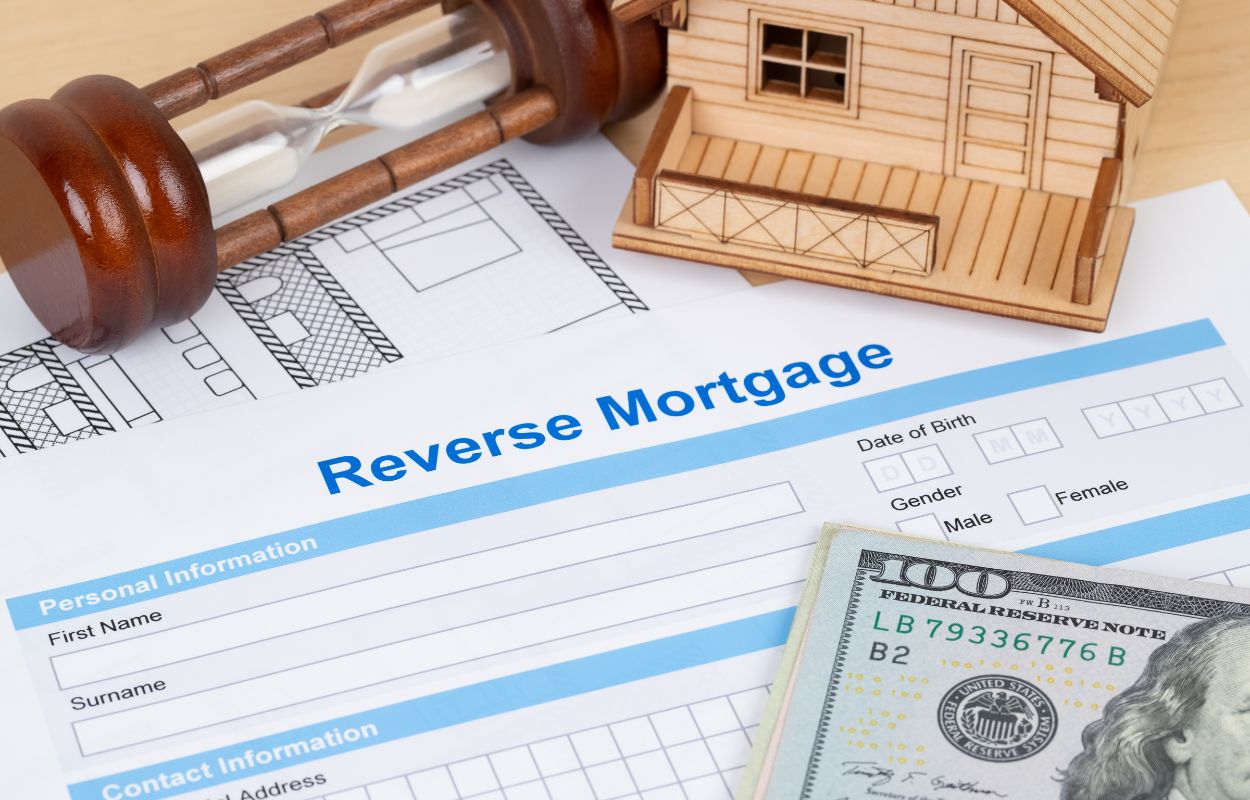 As retirement approaches, many individuals find themselves faced with financial challenges and uncertainties. One option that is often overlooked but can be incredibly beneficial is the reverse mortgage. A reverse mortgage is a financial tool that allows homeowners aged 62 and older to convert a portion of their home equity into tax-free funds. Here are three compelling reasons why you might consider a reverse mortgage when nearing retirement:
As retirement approaches, many individuals find themselves faced with financial challenges and uncertainties. One option that is often overlooked but can be incredibly beneficial is the reverse mortgage. A reverse mortgage is a financial tool that allows homeowners aged 62 and older to convert a portion of their home equity into tax-free funds. Here are three compelling reasons why you might consider a reverse mortgage when nearing retirement:
Supplement Your Retirement Income:
One of the most common concerns for retirees is whether they will have enough income to maintain their desired lifestyle throughout their golden years. Social Security and retirement savings may not always be sufficient to cover all expenses, and this is where a reverse mortgage can come to the rescue.
With a reverse mortgage, you receive monthly payments, a lump sum, or a line of credit based on the equity in your home. The funds you receive are not considered taxable income, and they can be used to supplement your retirement income, pay off existing mortgage debt, or cover unexpected medical expenses.
Eliminate Monthly Mortgage Payments:
A significant advantage of a reverse mortgage is that it allows you to eliminate monthly mortgage payments. By converting your home equity into a reverse mortgage, you can live in your home without the burden of monthly payments. This can free up a substantial portion of your income for other expenses, improving your financial security and reducing your financial stress.
Maintain Ownership of Your Home:
Some people worry that a reverse mortgage will require them to give up ownership of their home. However, this is not the case. With a reverse mortgage, you retain ownership of your home as long as you continue to live in it and maintain it. The loan is repaid when you or your heirs sell the property or when you no longer live in the home.
It’s important to note that a reverse mortgage is not suitable for everyone, and there are eligibility requirements and responsibilities associated with it. Before considering a reverse mortgage, it’s advisable to consult with a financial advisor or mortgage specialist to understand the terms, implications, and potential risks involved.
A reverse mortgage can be a valuable tool for retirees facing financial challenges or seeking to enhance their retirement lifestyle. When nearing retirement, it’s essential to explore all your financial options to make informed decisions that best align with your specific needs and goals. A reverse mortgage may be the right choice for you to enjoy a more comfortable and financially secure retirement.
 If you are getting ready to retire, you need to make sure you have income to support yourself during your golden years. One popular option is a reverse mortgage, and you can use it to supplement the benefits you receive through Social Security. On the other hand, you may have also heard about a home equity conversion mortgage. What are the differences between them, and which one is right for you?
If you are getting ready to retire, you need to make sure you have income to support yourself during your golden years. One popular option is a reverse mortgage, and you can use it to supplement the benefits you receive through Social Security. On the other hand, you may have also heard about a home equity conversion mortgage. What are the differences between them, and which one is right for you? There are many individuals who end up on a fixed income once they reach a certain age; however, their expenses aren’t always fixed. Sometimes, there is a large medical expense. In other cases, someone might need money for a new car or a home repair. In the event that someone needs cash quickly, one option is called a reverse mortgage.
There are many individuals who end up on a fixed income once they reach a certain age; however, their expenses aren’t always fixed. Sometimes, there is a large medical expense. In other cases, someone might need money for a new car or a home repair. In the event that someone needs cash quickly, one option is called a reverse mortgage. One of the most common worries that people have is money. When it comes to those golden retirement years, many people worry about running out of money. At the same time, most people who reach their retirement years have a lot of equity in their home.
One of the most common worries that people have is money. When it comes to those golden retirement years, many people worry about running out of money. At the same time, most people who reach their retirement years have a lot of equity in their home.